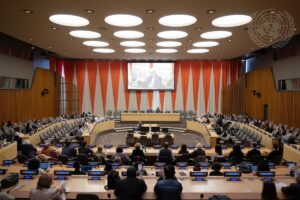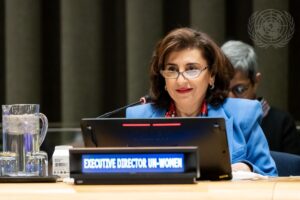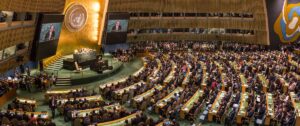Abstract
This policy brief recommends the introduction of a “G20+” to lead the way on a post-pandemic socio-economic recovery that is effective, sustainable, and equitable. The “G20+” would harness the group’s formidable economic and political clout, while addressing its current deficits as regards legitimacy, representativeness and connections to the wider multilateral system. The policy brief sets out specific priority actions for the “G20+” to pursue, both in the short and medium-term, and outlines which institutional innovations are needed to achieve these ends. Moreover, it sketches a strategy for launching the “G20+”, starting with Italy’s G20 Presidency in 2021.
Challenge
In Need of Leadership for a Post-Pandemic Recovery
In this policy brief, we urge the G20 to lead the way towards an effective, sustainable and equitable socio-economic recovery from the corona pandemic. To do so and to rally the support of the international community, the G20 needs to overcome its own legitimacy deficit, which it can in the form of what we call a “G20+”.
The corona pandemic was described as “the largest global challenge in the history of the United Nations” in the Declaration on the Commemoration of the Seventy-Fifth Anniversary of the UN adopted in 2020 (United Nations General Assembly 2020a). As the declaration continues to note, the pandemic “has not only caused death and serious illness, but also global economic recession, increased poverty, anxiety and fear”.
To grasp the magnitude of the leadership deficit facing the multilateral system – including the G20 and United Nations – in response to the COVID-19 pandemic in 2020, one need only consider the startling human tragedy and worldwide socio-economic devastation left in the wake of the pandemic. At the time of writing, approximately four million lives have been claimed (as of June 2021, World Health Organization 2021). Moreover, the IMF has estimated a 3.3% contraction in global GDP in 2020, which it considers “unprecedented in living memory in its speed and synchronized nature” (IMF 2021).
Although markets are recovering, this wholesale volatility, coupled with severe economic and social knock-on effects from government-ordered business closures and population lockdowns, resulted in a drastic decline in finance, trade, air travel and many other sectors of our closely intertwined global economy, as well as millions of job losses (United Nations General Assembly 2020b; Jones, Brown, and Palumbo, 2020; OECD Economic Outlook, 2021).
Moreover, this crisis occurs alongside – and has been shown to exacerbate in some cases– existing and emerging ones, including runaway climate change, financial instability, rising political violence, menacing cyber-attacks and growing inequality within and between countries (Stimson Center and Doha Forum 2020). While vaccination programmes have gained speed in Global North countries, and their economies are aided by vast stimulus packages (above all the US$1.9 trillion package passed by the Biden administration in March 2021, with a further infrastructure recovery plan expected later this year; Pramuk 2021), there is a risk that inequalities will be exacerbated, and many countries in the Global South will be left behind, leading to lasting mistrust and grievances that are likely to hamper multilateral
cooperation for many years to come. By bringing about socio-economic recovery that is not only effective but also equitable, the G20 can play a key role. In response to the 2008-9 crisis, the Pittsburgh G20 Summit in September 2009 vowed to make the G20 the “premier forum” for overseeing international economic and financial cooperation and, thereafter, established the Financial Stability Board to implement reform of international financial regulation and supervision (G20 2009; Financial Stability Board 2012). However, in the intervening decade (and prior to the Covid pandemic), economic inequality increased sharply in many parts of the globe, concentrating income and wealth in a small percentage of the population (Alvaredo et al. 2017; Oxfam International 2019). There is, unsurprisingly, a spreading sense of resentment against economic globalization among those who, in contrast to its greatest beneficiaries, see themselves as “left behind by globalization and automation”, also in industrialised countries (Coyle 2017).
Read the full issue brief on Think20.



